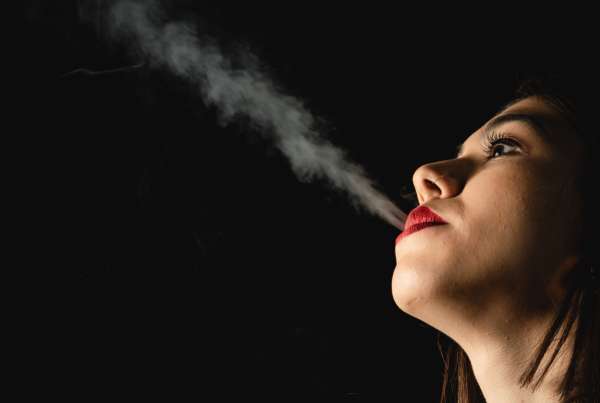So, you found out that your teen is using weed. Maybe you’ve suspected it for a while but weren’t sure. Or maybe you had no idea and caught them in the act, or heard about it from a friend of theirs, or a teacher. Or, less likely, but best of all: your teen told you.
Regardless of your personal feelings towards marijuana, there are undeniable risks associated with marijuana use among teens.
For one, there’s the risk of legal repercussions. Then, there are the actual effects of marijuana use among teens. While weed is less addictive than nicotine or alcohol, there is an undeniable amount of evidence that points toward the long-term cognitive and psychological impact of marijuana use among teens.
Furthermore, smoking weed – as opposed to eating it, or using cannabis oils – still poses a risk to the lungs, even if inhaled in vapor form (bongs or vaping devices).
But while these worries are justified, expressing them erratically or jumping to angry judgment may alienate your teen from you, destroy the opportunity for dialogue, and affect your chances of helping them seek treatment if necessary.
Why It’s Important to Stay Calm
An estimated 37 percent of high school students have tried marijuana at some point in their lives. Very few of them went on to struggle with long-term addiction, whether to marijuana or any other substance.
While being vigilant is important, especially if you had no idea your teen was using drugs of any kind, it’s also important not to blow things out of proportion or risk pushing your teen away in an emotional tirade.
For one, reacting angrily or with any amount of vitriol will discourage your teen from coming forward with any information about what they’ve been doing. You’re effectively telling your teen: “Don’t tell me the truth, I will freak out”.
It’s normal to feel anxious or freaked out. It’s also normal to feel angry in these circumstances. Even if you aren’t particularly worried about the long-term impact of a single instance of youthful experimentation, any parent would be upset about the risk their teen has taken, or the fact that they probably did so in total secret.
But teens aren’t the most rational or understanding individuals. If you reflect their decision to tell you – or the revelation itself – with an emotional outburst, their first instinct will be to act defensive, and resolve not to tell you about anything else they’ve done in fear of retaliation.
Think things through. First, you will need to understand the extent of your teen’s drug use. You will need to know how bad things have gotten, and the complete scope of the issue. That’s impossible without winning and keeping your teen’s trust. And that means letting them know that you’re not here to judge them, but to help them.
There’s No Point in Blame
When something bad happens, our first instinct is to understand why it happened. More to the point, we want someone or something to blame. Sadly, things rarely ever pan out in such a way that a single person or factor can realistically take all of the blame. There are a million nuanced factors that affect a person’s judgment in any given time, especially the judgment of a teenager, which can vary wildly from moment to moment.
The decision to try a drug like marijuana as a teenager is based on movies and pop culture, parental feelings and history towards drug use, peer choices, individual susceptibility to social pressure, a teen’s sense of self-worth and identity among the community, victimization, personal popularity, their mental state at the time, a teen’s personality and ability to assess risk, knowledge of drugs and their effects, and attitudes towards authority.
Rather than figure out which factor among a list of potential factors was the most important, it may be more productive to concentrate on protective factors which help reduce a teen’s likelihood of drug use.
These include the following:
- Better coping mechanisms for social and school-based stressors.
- Access to mental health resources at school and in the community.
- A closer bond with the community.
- A positive parent-child relationship.
- Positive parental involvement in a teen’s interests, hobbies, and school life.
- Better and more accurate drug education.
Protective factors aren’t just relevant before teens try drugs. They continue to be relevant even in the treatment of addiction, where they can help a teen focus on sobriety and recovery.
Why Teens Aren’t Worried About Marijuana
Context matters. When we hear of a string of violent crimes, we don’t take into consideration that news media has changed our perception of the world around us, leading us to forget that, while the streets seem less safe, they’re statistically safer than ever before, especially for kids.
In that vein, it’s important not to lose sight of the fact that today’s generation is using fewer drugs than previous generations, and is less likely to engage in risky behavior, such as unprotected sex or drunk driving.
Marijuana is an exception. While kids are smoking less, drinking less, and using less ecstasy, they’re still smoking weed at a steady rate. In fact, marijuana is the most commonly used federally illegal drug in the US. Nearly every fifth person in the country smoked weed at some point by 2019.
There may be a few reasons why teens aren’t that worried about weed. For one, weed has been massively criminalized and weed use has been disproportionately punished for decades, specifically targeting people of color. Teens today are more aware of the US’ history of racial prejudice, and the role that the war on drugs played in continuing to widen the chasm of opportunity between white and black citizens.
The exaggerations of the effects of marijuana on the mind and body during the DARE era, and the adult hypocrisy of the widespread usage of marijuana despite fearmongering of its properties as a gateway drug also served to seriously disarm a lot of the arguments against marijuana usage.
Teens were never really afraid of weed and most of the tactics designed to heighten that fear resulted in no effect or higher rates of marijuana use. That tells us something very important: teens will continuously question what you tell them, especially if they feel like it attempts to cover up a hypocrisy of some sort.
When addressing your teen’s weed usage, don’t exaggerate or lie. Stick to what’s true: long-term use of marijuana impacts memory and cognition, effectively reducing intelligence, and even raising the risk of symptoms of depression and anxiety. While it may not be as addictive as heroin or pose anywhere near the same immediate risk of overdose as fentanyl, it’s not a safe substance, especially for someone at the very beginning of their entire adult life.
Consider a Professional Intervention
Many kids never try drugs. Some kids really do try a drug once or twice, and then never again. Some kids smoke or drink for a while but quit when college gets rough, and their focus on studies cuts into social time. Others struggle much more with their drug use, to the point that they begin developing signs of addiction.
It’s important to keep an eye out for these signs and to consider a professional intervention, sooner rather than later.









